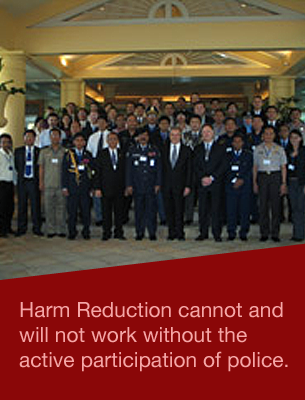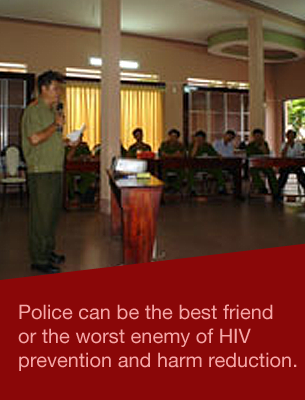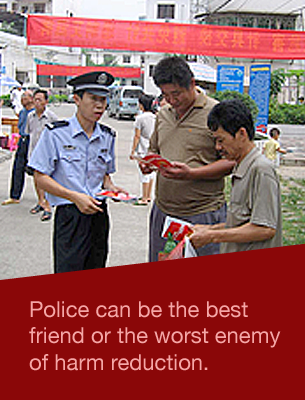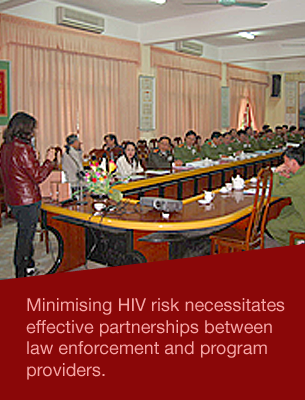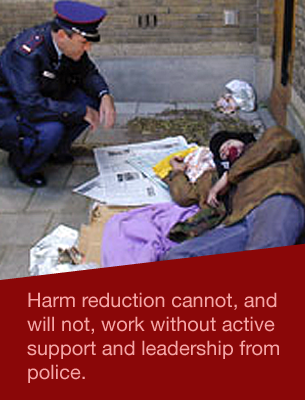In July 2016 a Round Table meeting took place during the international AIDS conference on “Enhancing Partnerships Between Law Enforcement, Criminal Justice and HIV Programmes Working with Key Populations: Opportunities in South Africa”.
Key Recommendations
1. The South African National AIDS Council, along with other key stakeholders, should support national and local level facilitated dialogues between police, key populations and HIV programme implementers. These dialogues should aim to support the design and implementation on of individual and multi-sector strategies to foster an enabling environment for HIV prevention and harm reduction.
2. A review and reform of laws and policies that directly detract from the ability of police and HIV service providers to provide such an enabling environment is warranted and will be a critical component of supporting the role of police in the national HIV response.
3. Several capacity development activities should be implemented, specifically:
a. Interventions to build the capacity of community-based and civil society organisations to engage more effectively with the police;
b. Legal literacy capacity building is critical to ensure that key population groups understand their legal rights including their right to TB/HIV care while in police custody;
c. The capacity of stewards and office bearers within National AIDS structures/ programmes to engage with police around structural issues which involve/ are influenced by the law, policing and law enforcement need to be developed.
4. The immediate implementation of HIV- related training, standard operating protocols and reporting mechanisms to guide, monitor and evaluate the role of police in the national HIV response at a policy and operational level is required. These protocols should specifically outline how police engage with key populations to prioritise the decreased risk of HIV infection and transmission for/between police and /or community members.
5. The role of police should be clearly articulated and included in National HIV Strategies. This will ensure funding for relevant police responsibility (development of operating protocols, police training, police liaison etc.) is built in to the strategy, annual workplan and budget and hence facilitate implementation and evaluation of the strategy.
6. Relevant departments and policing scholars within universities often have more contact points with police than public health schools and therefore expanded partnerships between such university based individuals and public health departments in the context of the police and HIV partnership are warranted. These partnerships should look to co-design action research that can help build evidence of the positive impact of progressing strategies towards an enabling environment.
7. The establishment of police liaison officers for key populations should be considered. This will provide opportunities for liaison officers to interact with HIV programmes as well as being peer educators within their stations. A primary role of the police liaison would be to act as a point person who can receive and respond to reports of abuse/violations against key populations both by the general population and by other police. Such a police person would have to be of a significantly high ranking in the police organisation(s).
8. The development of a police oversight committee or body to ensure complaints against police by key populations are recorded, investigated and actioned should be considered.
Dr Nick Thomson delivered a presentation at the Round Table meeting (see below) which is available here
“Towards an Enabling Environment: Enhancing Partnerships between Law Enforcement, Criminal Justice and HIV programs working with key populations”
Join LEAHN and receive our eNews




